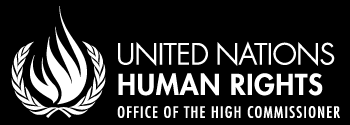South Africa attempts to stop the work of UN gay rights watchdog
LGBTI activists alarmed and disappointed
In June 2016, the United Nations Human Rights Council decided to appoint, an Independent Expert for protection against violence and discrimination based on sexual orientation and gender identity (SOGI), for a period of three years.
South Africa abstained from the vote and requested further discussion on the legality of the mandate. Now the African Group, of which South Africa is a member, has sent a letter seeking to suspend the functioning of the Independent Expert. The letter, delivered by Botswana’s permanent ambassador to the United Nations, states:
The African Group is strongly concerned by the attempts to introduce and impose new notions and concepts that are not internationally agreed upon, particularly in areas where there is no legal foundation in any international human rights instrument. We are even more disturbed at the attempt to focus on certain persons on the grounds of their sexual interests and behaviours, while ignoring that intolerance and discrimination regrettably exist in various parts of the world, be it on the basis of colour, race, sex or religion, to mention only a few. These attempts undermine not only the intent of the drafters and signatories to various human rights instruments, but also seriously jeopardize the entire international human rights framework as they create divisions.
It further states:
The adoption of the resolution 32/2 entitled: Protection against violence and discrimination based on sexual orientation and gender identity in June 2016 is a clear illustration of these attempts.The Group is therefore concerned that non-internationally agreed notions such as sexual orientation and gender identity are given attention, to the detriment of issues of paramount importance such as the right to development and the racism agenda. We are alarmed that the Council is delving into matters which fall essentially within the domestic jurisdiction of states counter to the commitment in the United Nations Charter to respect the sovereignty of states and the principle of non-intervention.
International and national organisations claim the signing of the letter by South Africa sees the country abandoning its own local laws, policies and actions to support human rights.
Melanie Judge, queer activist and associate professor at the University of Cape Town’s Centre for Law and Society, says, “Historically, South Africa has played a leading role in actions, both domestic and international, to challenge discrimination on the basis of sexual orientation and gender identity. Now our government wants to reverse these actions by directly undermining the Human Rights Council and trying to stop the work of the SOGI Independent Expert.”
She says the letter refers to “the ominous usage of the two notions: sexual orientation and gender identity” and asserts that “those two notions are not and should not be linked to existing international human rights instruments”.
But, according to Judge, this assertion is in conflict with South Africa’s own laws on sexual orientation and gender identity and with the country’s equality jurisprudence.
Matthew Clayton, Research, Policy and Advocacy Manager at Triangle Project, is disappointed and was surprised by the move after a seemingly positive engagement with the Department of International Relations and Cooperation (DIRCO) in August.
”These actions might appear to be an escalating hostility towards LGBTI people from DIRCO and sends a dangerous message about who is worthy of protection,” said Clayton. “South Africa must stand up for LGBTI people’s rights when it is inconvenient and difficult.”
Correction: The original version of this article incorrectly stated that South Africa signed the African Group’s letter. We have no evidence that an actual signature by a South African representative was put on the letter. However, South Africa is part of the African Group, and since it did not explicitly distance itself from the letter, it tacitly supported it.
Support independent journalism
Donate using Payfast

Don't miss out on the latest news
We respect your privacy, and promise we won't spam you.
© 2016 GroundUp. 
This article is licensed under a Creative Commons Attribution-NoDerivatives 4.0 International License.
You may republish this article, so long as you credit the authors and GroundUp, and do not change the text. Please include a link back to the original article.

